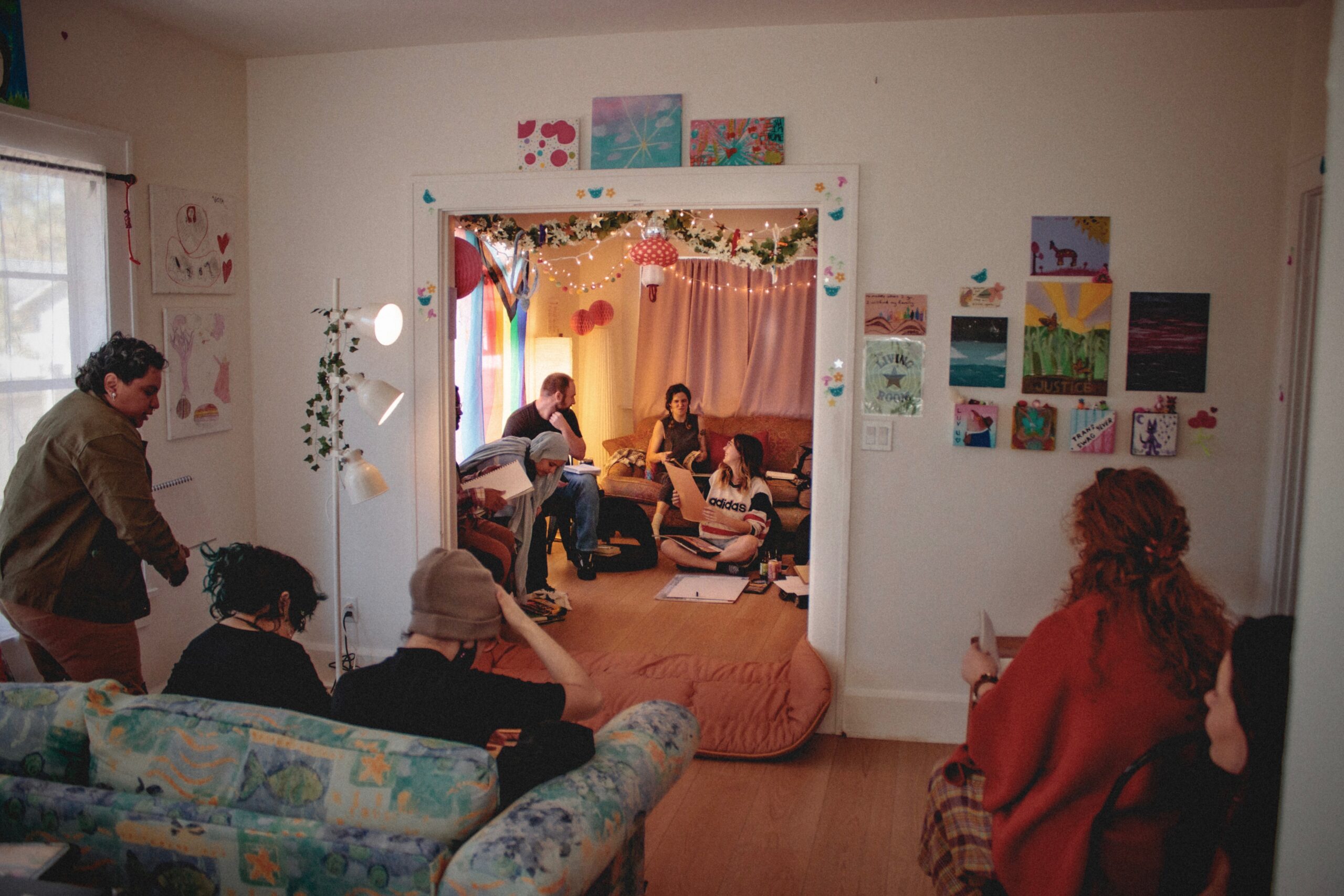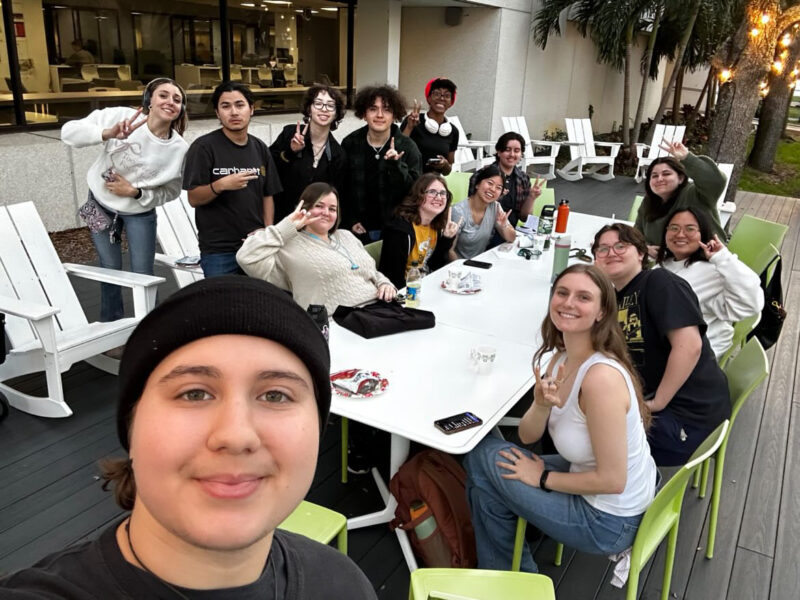A dean thinks the library is too quiet. A business program doesn’t prepare students to go out and get a job. A professor says it is important to listen to sex workers. What’s going on here? Those who attended The Genius Next Door—a new, monthly series at the Dali Museum—were able to find out.
On Jan. 17 in the museum’s theater, a three-member panel from USF St. Petersburg presented vastly different ideas with the same bottom line: individuals need more opportunities to create and share their own ideas.
The moderator, Frank Biafora, dean of the College of Arts and Sciences, explained that the series was launched so that the Dali Museum could work more closely with USFSP, and it was decided that they would “live on the edge and try something new.”
“The American dream has changed,” said Daniel James Scott, associate director for the Sustainable Entrepreneurship & Innovation Alliance, who cautioned that students should no longer assume that a job will still be there when it is time to retire. Scott presented a solution to the changing career landscape—give young people the knowledge to start a new business.
“We are innovating all of the time—we are at the forefront,” he said about USFSP’s leading entrepreneurship program. “Can you teach an undergraduate to be an entrepreneur? Yes.”
Carol Hixson, dean of the Nelson Poynter Memorial Library, said she wants to dispense with the silent library because libraries should be a place for collaboration (with, of course, some areas for quiet study). Her vision: to dismantle old space and open new areas in the library where people can “connect and interact” with resources and each other.
“I never aspired to be a librarian,” Hixson said.
She explained that her early interest in foreign languages and cultures developed into a commitment to providing multiple points of view in graduate school. Hixson is all about connection—between the library and the community, and among the students.
Jill McCracken, associate professor in the English department, explained her research on sex workers stems from her interest in power relations. McCracken said that it is important for sex workers to directly participate in exploring issues, such as individual safety, so that the results can make the most sense.
“What’s fascinating is the connection between the helper and the helpee,” said McCracken, who emphasized that it is important when conducting research to ask, “Who is helping who?”
Sandee Steinberg, who recently retired from her job as a general merchandise manager with Dillards, said she loved the program and was “fascinated by the idea that the entrepreneurship program at our university is on the leading edge of something in business.”
Lucy Trimarco, a USFSP art professor, said she enjoyed it and thought the event was a beautiful overlap of the whole community. Salvador Dali, with his penchant for seeing things differently, would probably have enjoyed it, too.
The next program in The Genius Next Door series is scheduled for Thursday, Feb. 21 at 6:00 p.m.


